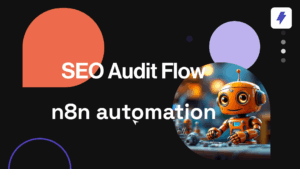In the realm of artificial intelligence (AI), ChatGPT has emerged as a transformative force, showcasing remarkable capabilities in natural language processing and conversation. Developed by OpenAI, ChatGPT is part of the GPT (Generative Pre-trained Transformer) family of models, and its applications span a wide range of industries. In this blog, we embark on a journey to explore the myriad use cases of ChatGPT, from revolutionizing customer interactions to aiding in content creation and beyond.
Table of Contents
ToggleI. Revolutionizing Customer Interactions
Chatbots Redefined
One of the primary and widely adopted use cases of ChatGPT is in the development of intelligent chatbots. Unlike traditional rule-based chatbots, ChatGPT-powered bots can engage in more natural and contextually relevant conversations. Businesses are leveraging this technology to enhance customer interactions, streamline support processes, and provide instant assistance.
Personalized Customer Support
ChatGPT’s ability to understand and generate human-like responses allows for personalized customer support experiences. These AI-driven systems can analyze user queries, provide relevant information, and even anticipate customer needs based on historical interactions. This not only improves customer satisfaction but also allows human support agents to focus on more complex and emotionally nuanced issues.
II. Content Creation and Enhancement
Automated Content Generation
Content creation, whether in the form of articles, blog posts, or marketing copy, has been revolutionized by ChatGPT. Content creators can use ChatGPT to generate ideas, draft initial content, and even fine-tune writing styles to match specific tones or genres. This collaboration between human creativity and AI efficiency accelerates the content creation process and opens up new possibilities for storytelling and communication.
If you’re looking to supercharge your content creation capabilities, don’t forget to check out Straico which is a multi-model AI offering multiple templates for Content Creation, Copywriting & Image Creation.
Writing Assistance and Editing
Writers and editors are finding valuable allies in ChatGPT. The model can assist in brainstorming, offer suggestions for improvement, and provide grammatical corrections. This not only improves the quality of written content but also serves as a learning tool for individuals looking to enhance their writing skills.
Straico offers multiple templates like language translation, grammar fixer, and text summarizer which help in content writing and editing.
III. Software Development and Coding Assistance
Code Generation and Review
ChatGPT is proving to be a boon for software developers, offering assistance in coding tasks. Developers can use ChatGPT to generate code snippets, troubleshoot issues, and seek guidance on best practices. This not only accelerates the coding process but also serves as a valuable resource for learning new programming languages and techniques.
Natural Language Interfaces for Programming
The integration of ChatGPT in software development extends to creating natural language interfaces for programming. Developers can interact with systems using everyday language, making it easier to convey complex instructions and receive code-related responses. This democratizes programming, making it more accessible to individuals with varying levels of technical expertise.
Check out this Code Wizard by Straico which is a template that helps generate custom code snippets based on code parameters like code type, language, framework, and desired functionality. Want to get your code reviewed and fixed, you can use this Code Fixer for this purpose
IV. Language Translation and Interpretation
Real-time Translation Services
ChatGPT’s proficiency in natural language understanding is harnessed in language translation services. These services enable real-time translation of conversations, breaking down language barriers and facilitating communication between individuals who speak different languages. This has significant implications for global collaboration, travel, and cross-cultural communication.
Contextual Interpretation
Beyond literal translation, ChatGPT excels at contextual interpretation. It can understand the nuances of language, idioms, and cultural references, providing more accurate and contextually appropriate translations. This is particularly valuable in scenarios where precision and cultural sensitivity are paramount, such as legal or medical interpretations.
Straico offers multiple templates like language translation, grammar fixer, and text summarizer which help in language translation and interpretation.
V. Healthcare and Medical Applications
Medical Documentation and Note-taking
In the healthcare sector, ChatGPT is finding applications in medical documentation and note-taking. Healthcare professionals can use AI-powered systems to transcribe spoken notes, generate patient summaries, and maintain detailed and accurate records. This not only improves efficiency but also allows medical professionals to spend more time on patient care.
Preliminary Diagnosis and Symptom Analysis
ChatGPT’s language understanding capabilities are being utilized for preliminary diagnosis and symptom analysis. AI systems can engage in conversations with patients, gather information about symptoms, and provide initial assessments. While not a replacement for professional medical advice, these tools can aid healthcare professionals in the diagnostic process.
VI. Financial Services and Analysis
Customer Engagement in Finance
In the financial services industry, ChatGPT is enhancing customer engagement and support. AI-driven chat systems can provide information about account balances, transaction history, and even offer financial planning advice. This not only improves customer satisfaction but also frees up human agents to handle more complex financial inquiries.
Fraud Detection and Market Analysis
The analytical capabilities of ChatGPT extend to fraud detection and market analysis. By processing vast amounts of financial data, AI systems can identify patterns indicative of fraudulent activities. Additionally, ChatGPT can analyze market trends, news, and economic indicators, providing valuable insights for investment decisions.
VII. Education and E-learning
Personalized Learning Experiences
In the education sector, ChatGPT is contributing to the creation of personalized learning experiences. AI-powered educational platforms can adapt to individual learning styles, provide customized content, and offer real-time feedback. This fosters a more engaging and effective learning environment for students of varying abilities and preferences.
Automated Grading and Tutoring
ChatGPT is also being employed for automated grading and tutoring. The model can assess written assignments, provide constructive feedback, and even engage in tutoring sessions to reinforce learning concepts. This not only saves time for educators but also enables students to receive immediate and personalized support.
VIII. E-commerce and Virtual Shopping Assistants
Enhancing the Shopping Experience
In the world of e-commerce, ChatGPT is revolutionizing the customer shopping experience. Virtual shopping assistants powered by AI can engage with customers, helping them find products, offering recommendations, and providing information about promotions and discounts. This mimics the personalized assistance one might receive in a physical store.
Conversational Commerce
The integration of ChatGPT in e-commerce extends to conversational commerce, where users can make purchases and complete transactions through natural language conversations. This streamlined and interactive approach to online shopping enhances user engagement and simplifies the purchasing process.
IX. Challenges and Considerations
Bias in AI
One of the significant challenges associated with the widespread use of ChatGPT is the potential for bias in the generated content. Since the model is trained on diverse internet text, it may inadvertently learn and replicate biased information. Addressing bias in AI models is crucial to prevent the perpetuation of stereotypes and discriminatory practices.
Ethical Use and Accountability
As ChatGPT becomes increasingly integrated into various industries, ensuring ethical use and accountability is paramount. Developers, organizations, and policymakers must establish guidelines and regulations to govern the responsible deployment of AI technologies, safeguarding against misuse and unintended consequences.
Privacy and Security
The use of ChatGPT in customer interactions, particularly in sectors like healthcare and finance, raises concerns about privacy and security. It is imperative for organizations to implement robust measures to protect user data, comply with privacy regulations, and build and maintain trust among users.
Explainability and Transparency
The opaque nature of AI models poses challenges in terms of explainability. Understanding how ChatGPT arrives at specific conclusions or generates certain responses is crucial for users to trust and comprehend the decisions made by AI systems. Efforts to enhance the transparency and explainability of AI models are essential for ethical AI deployment.
X. The Future of ChatGPT Use Cases
Continuous Advancements in AI Research
The future of ChatGPT use cases lies in continuous advancements in AI research. Ongoing efforts to address limitations, enhance model performance, and develop more sophisticated versions will unlock new possibilities and applications across diverse industries.
Human-AI Collaboration
Rather than replacing human roles, the future of ChatGPT use cases emphasizes collaboration between humans and AI. The focus will be on leveraging AI to augment human capabilities, allowing individuals to focus on tasks that require creativity, critical thinking, and emotional intelligence.
Ethical AI Development and Regulation
As ChatGPT continues to find its way into various domains, the importance of ethical AI development and regulation cannot be overstated. Stricter guidelines, industry standards, and regulatory frameworks will play a crucial role in ensuring responsible and accountable deployment of AI technologies.
ChatGPT Use Cases Are Diverse & Ever Growing
ChatGPT’s diverse use cases underscore its potential as a transformative tool across various industries. From revolutionizing customer interactions to aiding in content creation, software development, healthcare, finance, education, and e-commerce, ChatGPT is reshaping the way we work and interact with technology. As we navigate the evolving landscape of AI, it is crucial to address challenges, prioritize ethical considerations, and embrace the opportunities that ChatGPT presents for a future where human-AI collaboration drives innovation and efficiency.


